-
About
About our School
At Mount Michael the core of the academic program enables students to become inquiring learners, appreciative of their heritage, responsive and committed to the challenges of the future.
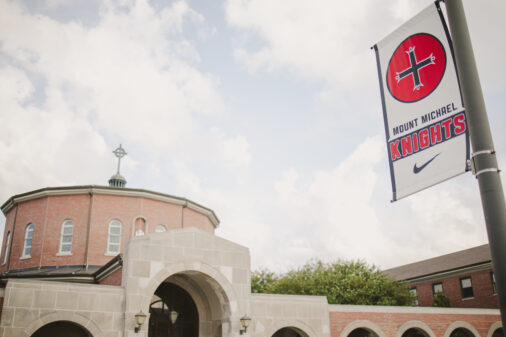
-
Admissions
Admissions
Mount Michael Benedictine School admits students of any race, color, national and ethnic origins to all the rights, privileges, programs and activities generally accorded or made available to the students.

-
Academics
Academics
Ultimately, it is our goal to enable every student to reach his educational and career potential.
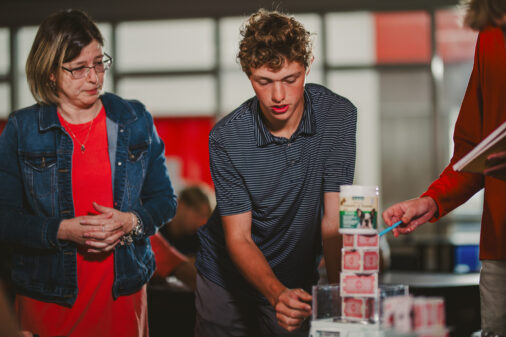
-
Counseling
Counseling
The Mount Michael Benedictine School Counseling program is a comprehensive counseling program dedicated to nurturing our students, families, and community.
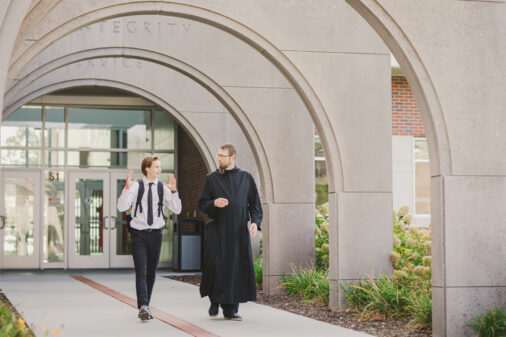
-
Spirituality
Spirituality
Benedictine values encompass a broad range of concepts that are central to life within a Christian community. It is quite possible to literally perceive dozens of values that can be deemed as Benedictine in nature. This a testimony to the breadth of “The Rule” and communal life established by Saint Benedict.
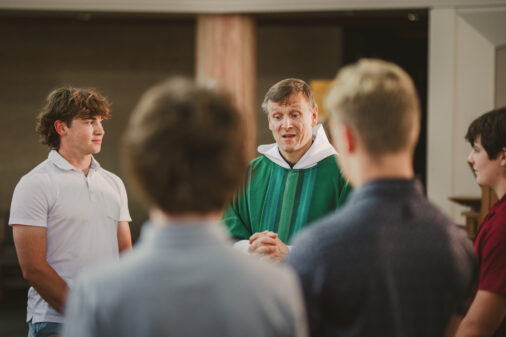
-
Activities
Activities
There are many opportunities for students to get involved at Mount Michael. Some are competitive, some are participatory. In either case it is all part of getting a well rounded educational experience.
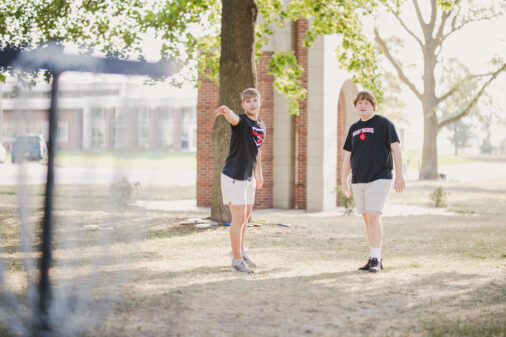
-
Athletics
Athletics
There are many opportunities for students at Mount Michael to participate in our top of the line athletic programs. Go Knights!
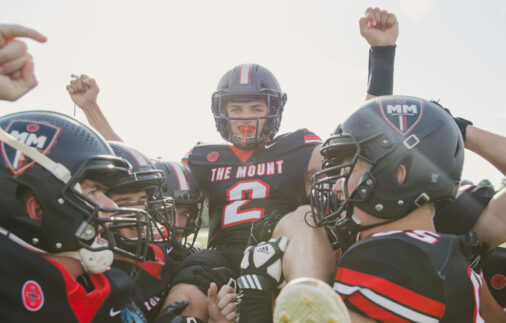
-
Advancement
Advancement
Under this tab you will find links to Mount Michael giving opportunities as well as information about fundraising events.
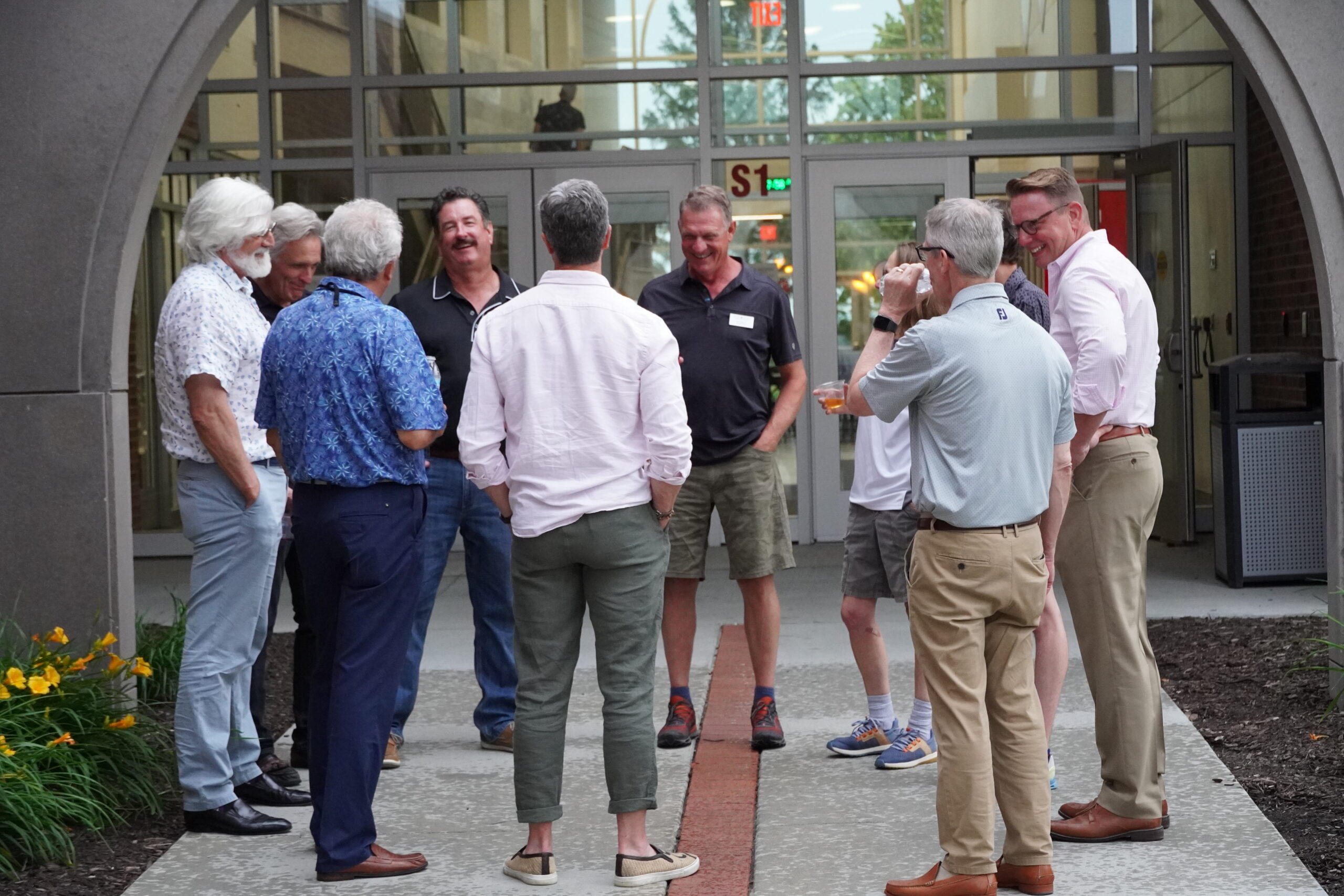
Natural Sciences
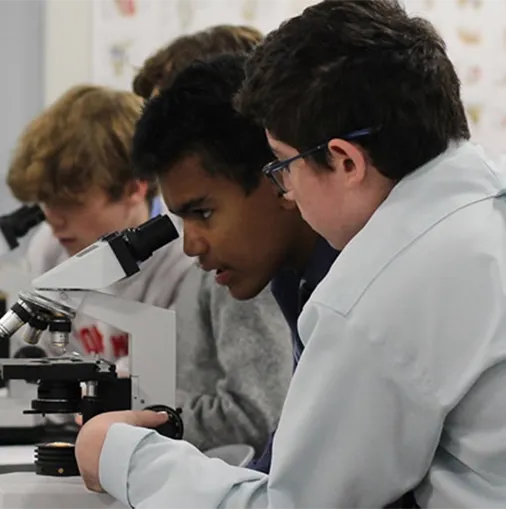
Natural sciences
Expand the bars below for a full description of each Natural Science course and the credit hours.
Biology
Biology is devoted to the study of living things and their processes. Throughout the year this course provides an opportunity for students to develop scientific process skills, laboratory techniques, and an understanding of the fundamental principles of living organisms. Students will explore biological science as a process, cell structure and function, genetics and heredity, evolution and classification, diversity of living organisms and their ecological roles, and matter and energy in ecosystems. (2 semesters, 5 credit hours per semester)
Chemistry
Chemistry is a course that explores the foundations of the chemical world. This course focuses on measurement, atomic structure, electron configuration, the periodic table, bonding, gas laws, properties of liquids and solids, solutions, stoichiometry, reactions, kinetics, equilibrium, acids and bases, and nuclear chemistry. Students should have a solid background in mathematics and be able to manipulate formulas prior to this course. (2 semesters, 5 credit hours per semester)
AP Physics
An AP level course for students in Pre-Calculus or above only. This course will follow the AP Physics 1 curriculum and will prepare students for the AP Physics 1 Exam at the end of the year. This is equivalent to Algebra based Physics 1 at most universities. Students should have strong mathematical skills to take AP Physics 1. Students will need to turn in an application to AP Physics 1 to Mr. Williams. The Topics Covered in AP Physics 1 are Kinematics, Dynamics, Circular Motion and Gravitation, Energy, Momentum, Simple Harmonic Motion, Torque and Rotational Motion, Electric Charge and Electric Force, DC Circuits, and Mechanical Waves and Sound.
Physics
This is the Physics course designed for students in Geometry as Juniors. It will be taught at a slower pace than AP Physics 1 and will cover less content. Students will need math skills developed in Algebra I and Algebra II to be successful. This algebra-based Physics course will cover only Mechanics topics including Kinematics, Dynamics, Circular Motion, Torque, Energy, and Momentum.
Anatomy & Physiology
Anatomy and physiology is a discussion- and laboratory-based study of the human body. This course is designed for college preparation, especially for biology and health-career majors. The areas to be covered include: body organization, cells and tissues, integumentary system, skeletal system, muscular system, nervous system, endocrine system, reproductive system, cardiovascular system, lymphatic system, respiratory system, digestive system, and urinary system. (2 semesters, 5 credit hours per semester)
Forensic Science
Forensic Science introduces the student to the science of crime scene investigation. The course integrates the applications of biology, chemistry, physics, environmental science, and computer science to explore the field of criminalistics. In addition, students will perform historical case studies and survey careers in forensic science. Laboratory activities will give students the opportunity to demonstrate forensic science techniques presented in lectures. (10 credit hours)
AP Biology
Advanced Placement (A.P.) Biology is a two-semester sequence that introduces students to all major concepts within the scope of modern biology. These courses are intended for students majoring in the biological sciences or related pre-professional programs (pre-medicine, pre-dentistry, etc.). Topics covered include cell structure and function, metabolism, the biology of plants and animals, genetics, ecology, diversity, and evolution. Laboratory exercises provide hands-on experiences that reinforce the lecture material. (2 semesters, 6 credit hours per semester)
AP Chemistry
Advanced Placement (A.P.) Chemistry is a second-year chemistry course that is designed to serve as the equivalent of an introductory freshman college chemistry course. This course will cover more material than a first-year chemistry course and will expand on information previously introduced. Students will spend the year mastering the fundamentals of theoretical and computational chemistry. Students will be responsible for maintaining a lab notebook, safely using lab equipment and chemicals, writing scientifically, and properly communicating topics to teachers and peers. Students are required to take the AP exam offered in the spring. (12 credit hours)
Honors Physics
Honors physics is a second-year physics course offered to seniors. It is the equivalent of a first year college physics course with calculus. Students taking this course are required to take calculus concurrently. Students who choose to pay a registration fee may earn 8 hours of college credit from Creighton University provided that they successfully manage the course. Topics covered are classical mechanics, special relativity, optics, thermodynamics, electricity and magnetism, quantum mechanics, and nuclear physics. Class meets five days per week. Classes consist of lectures, problem solving, laboratory exercises, demonstrations, computer-based exercises, and video materials. In the classroom, the students are always the focus of the learning. In addition to being asked to respond to questions in class, students are expected to demonstrate proficiency with material by making presentations to their classmates. Problems which require small groups occur each week. Demonstrations and laboratory exercises always have the students as the primary actors. (2 semesters, 6 credit hours per semester)

